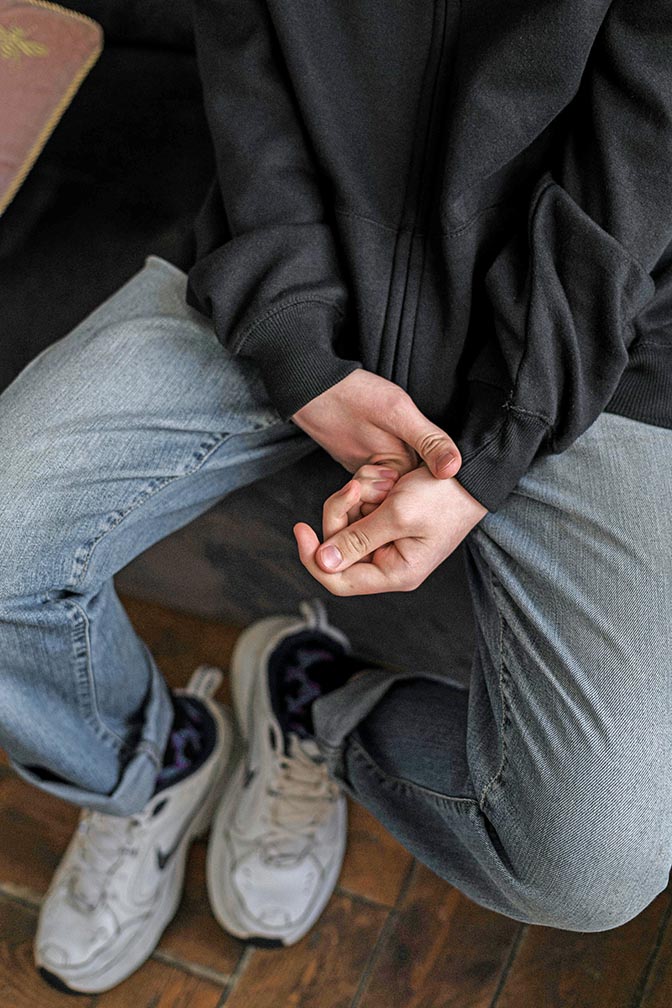Childhood is supposed to be a magical time filled with laughter, scraped knees, and happy memories that live on as some of the best times of our lives. Hidden between the vibrant chaos of childhood is a dark epidemic that often goes unnoticed until it is too late: childhood depression. As a parent, being deeply tuned in to your child’s subtle cries for help is crucial, as they may not fully know how to voice their pain. Depression in young people is not always treated as the serious mental health condition that it is. Depression in young brains can manifest differently than in fully developed brains. While warning signs vary, many common indicators are key to recognizing early in your child.
One of the most common indicators of depression is changes in behavior or mood. Is your normally cheerful and energetic child now irritable and withdrawn? Are they suddenly losing interest in things that have always brought them joy? These changes, along with others such as a decline in academic performance, difficulty concentrating, and frequent outbursts, are behaviors that are often handled poorly by parents. Many times, parents view these behaviors as the child being dramatic, disobedient or disrespectful. This may lead to punishments or altercations that intensify the child’s feelings of worthlessness and guilt because they are being punished for behaviors stemming from their depressive mood.
This can create a cycle in which behavior worsens due to depression, bringing more punishment, which feeds back into their negative emotional state. Instead of resorting immediately to punishment or argument, take the time to address the underlying problem. Ask your child if there’s anything they need from you to feel better mentally or physically. Be mindful of how you ask these questions. Often, children feel uncomfortable opening up to their parents about their struggles because they fear their parents will get mad at them. Make them feel loved, appreciated and seen. Tone matters. You are the most important voice in your child’s head.
There are also physical warning signs that are important to look out for. Sleep, appetite, fatigue, headaches, chest pains and stomach aches are the most common physical symptoms of depression to be aware of. Pay attention to how much (or how little) your child is sleeping. If you notice your child taking frequent naps or spending their free time sleeping, ask them about it in a way that does not sound accusatory. Frame it as an observation you’ve made. Remember to use a neutral tone to avoid triggering them into thinking you are upset, which could cause them to shut down. Monitoring how much or how little your child is eating is just as important. Depression can cause people to eat to cope with their feelings or, conversely, not to eat because of their feelings. Neither is healthy, especially for a depressed mind that needs the right amount of nutrients. Physical symptoms of depression cannot be ignored. They are key signs of depression in anyone, but especially in young people who should not otherwise have these issues.
Beyond what has already been mentioned, there are many other subtle signs to look out for. One of the most important things you can pay close attention to is the music your child listens to. Listen to the lyrics and tone of the songs they play. Often, you will find hidden cries for help in these songs. People tend to listen to music that reflects their moods, and people experiencing depression are no different. Asking your child about the music in a way that doesn’t seem like you are hounding them about depression can be a good way to ease into finding out more. Asking questions like what they like about the song or artist, or how the song makes them feel, is a good place to start when having those difficult conversations. Depression can also look like an increased sensitivity to others’ criticism, feelings of hopelessness about the future, feelings of worthlessness, guilt, shame, and other negative emotions associated with the self.
Trying to recognize these warning signs in your child does not make you an overbearing parent. Suicide is the second leading cause of death in people ages 10 to 34, according to the most recent study by the CDC in 2023. A 10-year-old should not be classified in a suicide death category, let alone even understand what suicide is. It is chilling that at such a young age, many children deal with the horrors of contemplating ending their pain by ending their own lives. As a parent, having open conversations that may be uncomfortable is necessary to ensure your child never makes that decision. This responsibility can feel overwhelming. If you ever need advice on your child’s behaviors or emotions, there are many things you can do. Talk with your child’s pediatrician, speak to local mental health groups in your area or seek guidance from a mental health professional.
Recognizing early warning signs of depression gives parents the chance to have a huge impact on rewriting their children’s stories. Being someone’s biggest supporter and offering hope for better days ahead is the most important thing for anyone going through depression. Ensure that your child does not suffer in silence by being proactive in looking for these warning signs if you notice something is off.
Thatcher Seal can be contacted by email at thatcherseal3@gmail.com.





